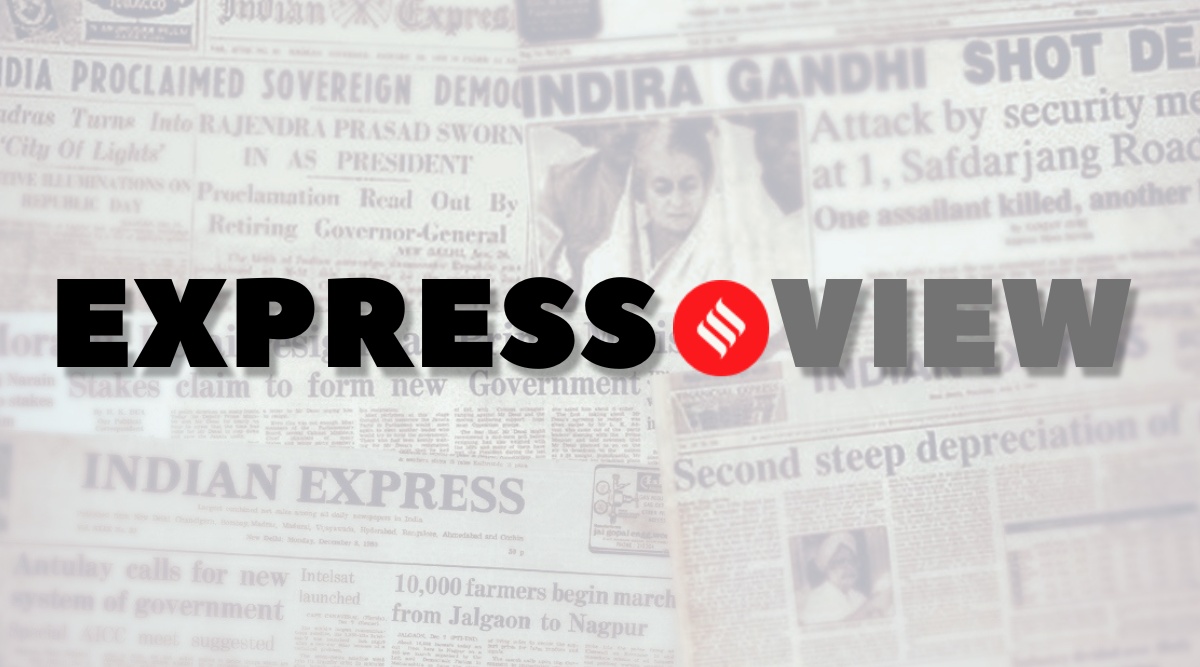SC penalising petitioner, whatever the merits of the case, is unjust; sends a chilling signal to those who question state Indian Express
16, Jul 2022 | Editorial
The Supreme Court must reflect on this worrisome inversion and call a halt to it before it does more damage to its hard-won reputation as the upholder of the constitutional check and balance.

The imposition of penalty on the petitioner in the Dantewada case is part of an emerging judicial pattern. It includes the SC ruling, last month, in a Gujarat 2002 case.
The Supreme Court rejected a petition Thursday seeking a CBI probe into alleged torture and extra-judicial killings by the Chhattisgarh Police and Central forces during anti-Maoist operations in Dantewada in 2009. What the bench of Justices AM Khanwilkar and JB Pardiwala did next raises troubling questions. It imposed a penalty of Rs 5 lakh on the main petitioner. The court did not just say that the investigation indicated that Maoists, not security forces, were responsible for the killing of 17 people in separate incidents on September 17 and October 1, 2009, but also slapped an “exemplary” cost on Himanshu Kumar, who runs an NGO in Dantewada. The court’s heavy fine sends a chilling signal to all those who would knock on its door in the future armed with nothing more than a plea against the state. It upends and overturns the court’s own approach so far of accepting petitions, from anywhere, and in whichever form, even as a postcard addressed to a judge, or as a newspaper report. In the public interest litigation jurisdiction, in fact, the petitioner is often rendered incidental to the case, as the court takes over the cause, appoints local commissioners and officers, ensures due diligence in the search for truth. The stiff penalty on the petitioner also echoes the stance of the state in case after case — of labelling or ascribing ulterior motives to all those who raise questions, and demand answers, justice, or redress.
The imposition of penalty on the petitioner in the Dantewada case is part of an emerging judicial pattern. It includes the SC ruling, last month, in a Gujarat 2002 case. Here, the apex court upheld the SIT clean chit to the Gujarat government led by then chief minister Narendra Modi and quashed allegations of a larger conspiracy by high state functionaries. But it did not stop there — it also, in effect, asked for punishment for the petitioners. It cast in the dock those who, in its view, “keep the pot boiling” “obviously for ulterior design” and urged that they be proceeded against. As if on cue, activist Teesta Setalvad and former Gujarat DGP RB Sreekumar were arrested the very next day, the FIRs quoting extensively from the apex court verdict. Whatever the merits of the case, and notwithstanding its inability to hold up in court, the cornering and punishing of the petitioner is unjust and unwarranted. Most fundamentally, it violates the basic compact in a democracy between the citizen and an independent court — the SC is and should be the custodian of individual rights and freedoms, protecting them against transgression by the state but its recent approach suggests that it sees these individuals as irritants and the state as the one that needs protection.
The Supreme Court must reflect on this worrisome inversion and call a halt to it before it does more damage to its hard-won reputation as the upholder of the constitutional check and balance. Every petitioner who approaches the court against those more powerful than her must feel, she must know, that even if her plea is thrown out, she was heard but not punished or made to pay.
The original piece may be read here










